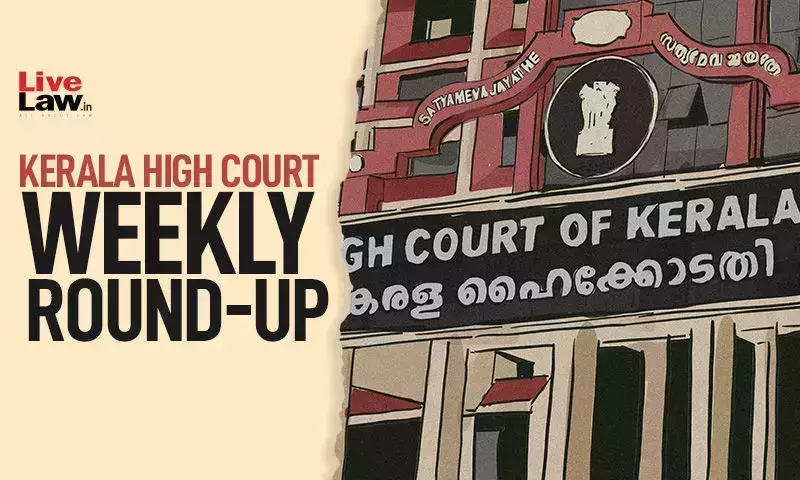Kerala High Court Weekly Round-Up: January 22 - January 28, 2024
Rubayya Tasneem
29 Jan 2024 9:54 AM IST

Next Story
29 Jan 2024 9:54 AM IST
Nominal Index [Citations: 2023 LiveLaw (Ker) 58 – 71]Rajeswari v Omana Amma, 2024 LiveLaw (Ker) 58Laila Bhagaval Singh v. State of Kerala, 2024 LiveLaw (Ker) 59PP Farooque & anr. v. Deputy Superintendent of Police, 2024 LiveLaw (Ker) 60SJ v State of Kerala, 2024 LiveLaw (Ker) 61E Pradeeep Kumar IFS v State of Kerala, 2024 LiveLaw (Ker) 62Poyil Salim V Thazhe Kandoth Mariyam, 2024...
